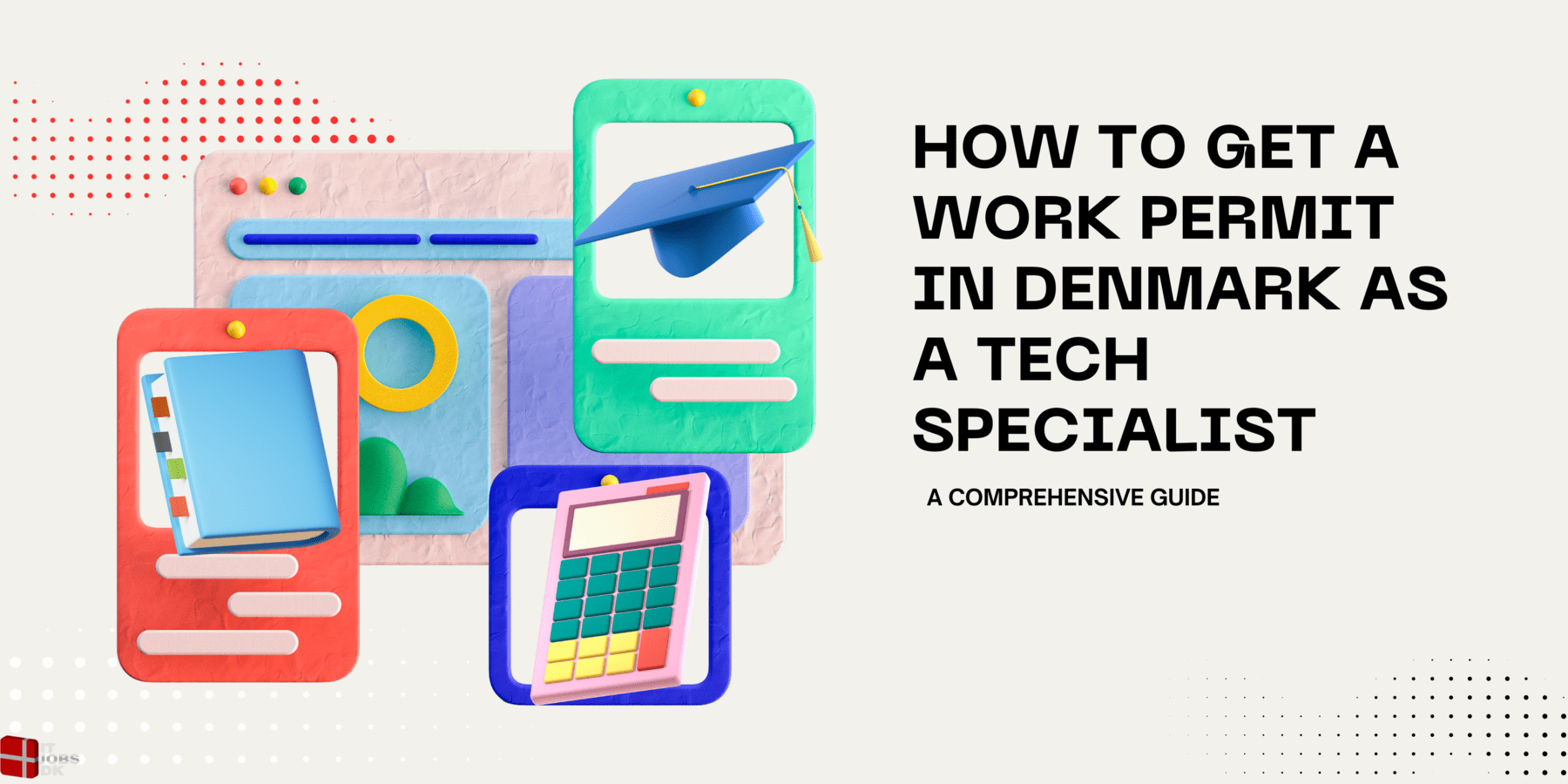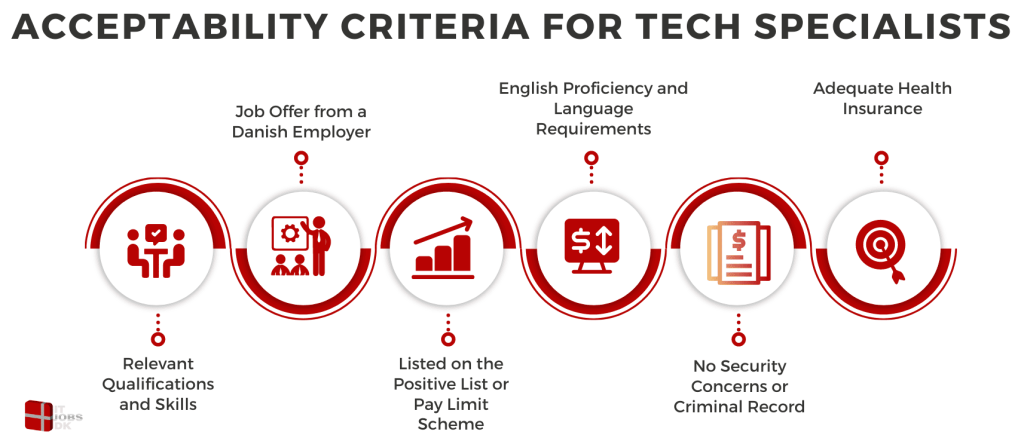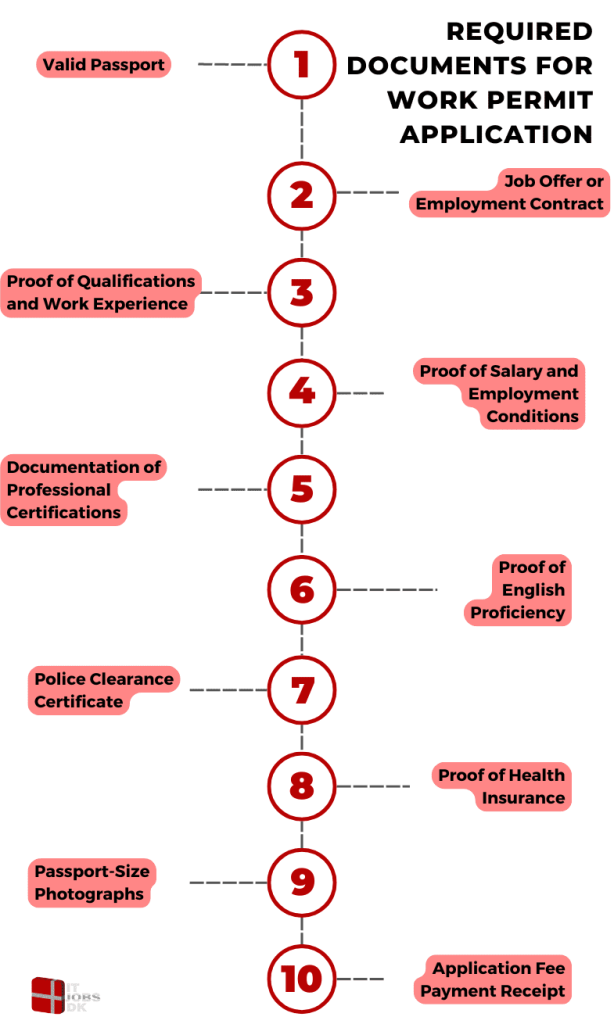
Denmark has rapidly emerged as one of Europe’s leading tech hubs, attracting a diverse pool of international talent eager to contribute to its dynamic digital landscape. With its strong focus on innovation, cutting-edge technology, and a supportive business environment, Denmark is home to numerous startups, tech giants, and a growing number of IT companies that are driving digital transformation across industries. This vibrant ecosystem has made the country an attractive destination for professionals seeking IT jobs in Denmark.
The Danish government actively supports the tech sector through various initiatives, including funding for startups, tax incentives, and a streamlined visa process for highly skilled workers. Cities like Copenhagen and Aarhus are at the forefront, hosting numerous tech events, accelerators, and co-working spaces that foster collaboration and growth. Additionally, Denmark’s strategic location in Northern Europe and robust IT infrastructure make it a prime spot for companies looking to expand their digital operations.
Acceptability Criteria for Tech Specialists
To work in Denmark as a tech specialist, meeting the eligibility criteria for a work permit is essential. Denmark offers several visa schemes specifically tailored to attract highly skilled professionals worldwide, making it easier for tech talent to enter the Danish job market. Understanding these criteria can help you determine your eligibility and prepare a successful application for a work permit in Denmark.
- Relevant Qualifications and Skills: To qualify for a work permit in Denmark, tech specialists must possess relevant qualifications, such as a degree in computer science, engineering, data analytics, or other IT-related fields. Employers often seek candidates with proven expertise in specific technologies, such as cloud computing, software development, artificial intelligence, and cybersecurity. Additionally, having certifications in tools like AWS, Microsoft Azure, or data analytics platforms can strengthen your application.
- Job Offer from a Danish Employer: One of the key requirements for obtaining a work permit is having a valid job offer from a Danish employer. The job offer must match the skills and qualifications listed on the Positive List, which includes professions that are in high demand in Denmark, such as software developers, IT consultants, and data scientists. Your job offer must be for full-time employment and meet the salary standards set by Danish regulations.
- Listed on the Positive List or Pay Limit Scheme: The Positive List is a compilation of professions currently in high demand in Denmark, making it easier for individuals in these fields to obtain a work permit. If your profession is not listed, you may qualify under the Pay Limit Scheme, which allows individuals to apply for a work permit if they have a job offer with a minimum annual salary threshold (DKK 465,000 as of 2024). This scheme is ideal for highly skilled professionals whose roles are critical but not listed on the Positive List.
- English Proficiency and Language Requirements: While Danish is the official language, English is widely spoken in the tech industry, and most companies do not require Danish language skills. However, demonstrating English proficiency can be beneficial, especially if your job involves collaboration with international teams or communication with clients.
- No Security Concerns or Criminal Record: As part of the application process, you must prove that you have no criminal record and pose no security risk to Denmark. This is usually confirmed through a police clearance certificate from your home country.
- Adequate Health Insurance: While Denmark offers a robust public healthcare system, applicants must initially provide proof of health insurance that covers them until they are registered in the Danish health system.

Meeting these eligibility criteria is crucial for securing a work permit Denmark tech specialists need to start their professional journey. Ensuring you meet these standards and have all necessary documentation prepared will streamline the application process and increase your chances of obtaining a work permit, allowing you to take full advantage of the exciting opportunities available in Denmark’s thriving tech sector.
Types of Work Permits in Denmark for Tech Professionals
Denmark offers several types of work permits tailored to accommodate the influx of skilled tech professionals from around the world. For non-EU citizens, obtaining a work permit in Denmark involves meeting specific requirements designed to attract highly skilled workers in fields where there is a shortage of qualified local talent. Below are the main types of work permits available to tech professionals seeking to work in Denmark:
- Positive List Scheme: The Positive List is a list of professions that are currently in high demand in Denmark, including many tech roles such as software developers, IT consultants, and data scientists. Non-EU citizens who have a job offer in one of these listed professions can apply for a work permit in Denmark without the need for additional labor market testing. This streamlined process makes it easier for qualified tech specialists to enter the Danish job market quickly.
- Pay Limit Scheme: The Pay Limit Scheme is an attractive option for highly skilled professionals, including tech specialists, who have a job offer with a high salary. To qualify, the job offer must meet the minimum annual salary threshold of DKK 465,000 (approximately EUR 62,500 as of 2024). This scheme is particularly beneficial for non-EU citizens whose roles may not be on the Positive List but are critical to the company’s operations. The Pay Limit Scheme allows tech professionals to work in Denmark without their job being specifically listed on the Positive List.
- Startup Denmark Scheme: For tech entrepreneurs and innovative startups, the Startup Denmark Scheme provides a unique pathway to obtain a work permit. This scheme is designed for non-EU citizens who wish to start and run an innovative business in Denmark. Applicants must present a solid business plan that demonstrates innovation and potential for growth. The plan is evaluated by an expert panel, and if approved, the applicant can obtain a work permit and establish their business in Denmark’s vibrant startup ecosystem.
- Fast-Track Scheme: The Fast-Track Scheme is designed for larger companies that are certified by the Danish Agency for International Recruitment and Integration (SIRI). This scheme allows companies to bring in highly skilled employees from non-EU countries quickly and efficiently. The Fast-Track Scheme provides several tracks, including short-term assignments and permanent employment, offering tech specialists a flexible way to work in Denmark. This is particularly useful for large tech firms and consultancies that frequently hire international talent.
- Researcher Scheme: Tech professionals involved in research and development may qualify under the Researcher Scheme. This work permit allows non-EU citizens to work in Denmark if they have a job offer related to research activities at Danish universities, research institutions, or private companies engaged in R&D. The scheme aims to strengthen Denmark’s position as a leading nation in tech research and innovation.

Each of these work permits caters to different needs, offering tech professionals various pathways to enter and thrive in Denmark’s robust tech sector. For non-EU citizens, understanding the specific requirements of each work permit in Denmark for non eu citizens is key to choosing the right one that aligns with your career goals and a job offer. By selecting the appropriate permit, tech specialists can smoothly transition into Denmark’s dynamic work environment and seize the opportunities that await in this leading European tech hub.
Required Documents for Work Permit Application
Navigating the process of how to get a work permit in Denmark involves preparing a set of essential documents that support your application. Ensuring you have all the correct paperwork is crucial to avoid delays and increase your chances of approval. Below is a comprehensive list of the key documents required to meet the Denmark work permit requirements for tech specialists:
- Valid Passport: A valid passport is a mandatory requirement for all applicants. Your passport should be valid for at least three months beyond your intended stay in Denmark, and it should have at least two blank pages for visa stamps.
- Job Offer or Employment Contract: One of the most critical documents is your signed job offer or employment contract from a Danish employer. This document should clearly outline your job role, salary, employment terms, and duration of the contract. It must align with the criteria of the work permit scheme you are applying under, such as the Positive List or Pay Limit Scheme.
- Proof of Qualifications and Work Experience: To demonstrate that you meet the technical skills required for your role, you must provide proof of relevant qualifications, such as degrees, diplomas, and certifications. Additionally, include evidence of your work experience, such as previous employment contracts, letters of reference, and a detailed CV.

- Proof of Salary and Employment Conditions: For schemes like the Pay Limit Scheme, proof that your salary meets the minimum threshold is essential. This can include official salary statements or employment contracts detailing your compensation package. The document should clearly show that the employment conditions adhere to Danish standards.
- Documentation of Professional Certifications: If your job requires specific technical certifications (e.g., AWS Certified Solutions Architect, Microsoft Certified: Azure Developer Associate), include copies of these certifications. They demonstrate your expertise and enhance your application.
- Proof of English Proficiency (if applicable): While not always mandatory, demonstrating English proficiency can be beneficial, especially for tech roles that require communication with international teams. Proof can include test scores from recognized exams like IELTS or TOEFL, or evidence of previous employment in an English-speaking environment.
- Police Clearance Certificate: To fulfill the Denmark work permit requirements, you may need to provide a police clearance certificate from your home country, proving you have no criminal record. This document helps assure the Danish authorities of your good character and eligibility to work in Denmark.
- Proof of Health Insurance: Applicants must provide evidence of health insurance coverage that is valid until they are registered in the Danish public health system. This requirement ensures that you have access to necessary medical services upon arrival in Denmark.
- Passport-Size Photographs: You will need to submit recent passport-sized photographs that meet the Danish visa photo requirements. These photos are typically used for your permit card and identification purposes.
- Application Fee Payment Receipt: A receipt confirming the payment of the application fee is usually required to complete your application. Ensure you keep a copy of the payment confirmation as proof.
Gathering and organizing these documents is a crucial step in understanding how to get a work permit in Denmark. Make sure all documents are translated into English or Danish if they are in another language and are properly certified if required. Meeting these requirements will ensure that your application process goes smoothly, bringing you one step closer to launching your tech career in Denmark’s vibrant and innovative environment.
Step-by-Step Application Process
Applying for a work permit in Denmark as a tech specialist involves several detailed steps, from determining your eligibility to submitting the required documents. With recent updates and new rules for Denmark, understanding the complete application process is crucial for a smooth transition into the Danish workforce. Here’s a step-by-step guide to help you navigate the work permit application process:
- Step 1: Determine the Appropriate Work Permit Type
- The first step is to identify the correct work permit scheme that fits your profile, such as the Positive List Scheme, Pay Limit Scheme, or Startup Denmark Scheme. Review the criteria for each scheme to ensure your job offer and qualifications match the requirements.
- Step 2: Check for Any New Rules and Requirements
- Before starting your application, review any new rules for Denmark, such as changes to salary thresholds, required documents, or eligibility criteria. The Danish Agency for International Recruitment and Integration (SIRI) regularly updates these rules, so it’s crucial to check their official website or consult with an immigration advisor to ensure compliance with the latest regulations.
- Step 3: Gather All Required Documents
- Collect all necessary documents as outlined in the previous section, including your employment contract, proof of qualifications, passport, and any other supporting evidence. Ensure that all documents are complete, accurate, and translated into English or Danish if required.
- Step 4: Submit Your Application Online
- Submit your work permit application through SIRI’s online application portal. Complete the application form corresponding to your chosen permit scheme and upload all required documents. Double-check that all fields are filled in correctly to avoid delays or rejections.
- Step 5: Pay the Application Fee
- Pay the mandatory application fee through the SIRI portal. Fees vary depending on the permit type, so ensure you are paying the correct amount. Keep the payment receipt as you will need it for verification during your application.
- Step 6: Attend Biometrics Appointment
- After submitting your application, you may be required to attend a biometrics appointment at a Danish embassy, consulate, or SIRI office. This appointment involves submitting fingerprints, photographs, and a signature, which are needed for your residence card. Schedule this appointment promptly to avoid delays in your application.
- Step 7: Wait for the Decision
- The processing time for work permits varies depending on the scheme and the completeness of your application. Generally, it can take from a few weeks to several months. You can track the status of your application online through the SIRI portal. During this period, SIRI may contact you for additional information or clarification.
- Step 8: Receive Your Work Permit
- If your application is approved, you will receive a letter of approval and your work permit card. This card serves as proof of your legal right to work and reside in Denmark. Ensure you keep this card with you at all times, as it may be required when accessing public services or traveling within the Schengen area.
- Step 9: Register with Danish Authorities Upon Arrival
- Once you arrive in Denmark, register with the Danish Civil Registration System (CPR) to obtain your CPR number, which is essential for accessing healthcare, opening a bank account, and other public services. You will also need to register your address with your local municipality.
- Step 10: Start Your New Job in Denmark
- With your work permit in hand and registration completed, you are now ready to start your job. Make sure to stay updated on any new rules or changes in work permit conditions during your stay to ensure ongoing compliance.
By following these steps and keeping an eye on any new rules for Denmark no work permit situations, you can navigate the application process efficiently. Proper preparation and adherence to the guidelines will help you secure your work permit, allowing you to begin your career in Denmark’s thriving tech industry with confidence.
Common Mistakes to Avoid During the Application Process
Applying for a work permit in Denmark can be straightforward if done correctly, but even small errors can lead to delays or rejections. To improve your chances of a successful application, avoid these common mistakes:
- Incomplete or Incorrect Documentation: One of the most frequent mistakes is submitting incomplete or incorrectly filled documents. Ensure all required documents are fully completed, signed, and properly translated into English or Danish if needed.
- Not Meeting the Salary Thresholds: For certain permits like the Pay Limit Scheme, failing to meet the minimum salary threshold can result in rejection. It’s important to verify that your job offer meets the required benchmarks, such as those set for roles like a data analyst salary Denmark.
- Missing Application Deadlines or Biometrics Appointments: Missing scheduled appointments for biometrics or submitting applications after deadlines can significantly delay your permit process. Be proactive in scheduling and attending required appointments on time.
- Ignoring New Rules and Requirements: Denmark’s work permit regulations can change, impacting eligibility and documentation requirements. Stay updated on any new rules for Denmark work permits to ensure your application meets the latest criteria.
Avoiding these common pitfalls and thoroughly preparing your application can help you secure your work permit efficiently, allowing you to start your new role in Denmark without unnecessary delays.
Start Your Tech Career in Denmark Today!
Navigate the work permit process with confidence—prepare your application, avoid common mistakes, and secure your future in one of Europe’s most innovative tech hubs.


 Previous Post
Previous Post Next Post
Next Post